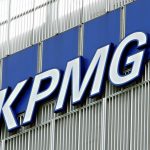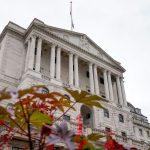Mortgage approvals have surged as home-buyers race to lock in loans ahead of further interest rate hikes, latest figures indicate.
The increase comes amid warnings of mounting “headwinds” facing the already slowing housing market in the face of rising inflation and the economic turmoil triggered by the chancellor’s mini-budget.
Kwasi Kwarteng’s borrowing-funded tax cut plans have raised the prospect of the Bank of England acting even more aggressively on interest rates, resulting in higher mortgage costs.
In response to the uncertainty, many mortgage products have been pulled by lenders.
The industry has also said stamp duty cuts unveiled as part of the package to boost house sales have been “wiped out by the tsunami of market volatility since”.
According to the Bank of England’s Money and Credit report, some 74,300 mortgage approvals were recorded in August, up by 16% from 63,700 the previous month.
Mini-budget: Do the sums add up after Chancellor Kwasi Kwarteng gives only half the story? | Paul Kelso
£1bn Serco pension scheme seeks loan from outsourcer amid markets turmoil
UK economy grows by 0.2% after predicted decline
This is the highest level since 74,500 approvals were recorded in January and follows a slide in previous months.
Samuel Tombs, chief UK economist at Pantheon Macroeconomics, said: “The sudden leap in house purchase mortgage approvals in August to their highest level since January likely reflects people attempting to secure loans ahead of expected increases in mortgage rates, rather than a fundamental strengthening of demand.”
Founding director of Revolution Brokers, Almas Uddin, said: “Mortgage approvals have continued to climb skyward in recent months, despite mortgage rates increasing in line with numerous base rate hikes by the Bank of England.
“This has been spurred by a sense of urgency from the nation’s home-buyers, who are keen to secure what remain fairly reasonable rates in anticipation of further increases to come this year.”
Please use Chrome browser for a more accessible video player
Meanwhile, Nationwide Building Society reported house price growth stalled month on month in September, but, on an annual basis, property values were still 9.5% higher than a year earlier.
Estate agents said there could be some re-negotiations against a backdrop of rising interest rates – and if this becomes a trend it could impact house prices.
Across the UK, the average house price in September was £272,259, Nationwide said.
Read more:
Fiscal watchdog to deliver mini-budget forecast after rare meeting with PM
Bigger headache to come if chancellor’s sums found not to add up – Analysis
Robert Gardner, Nationwide’s chief economist, said: “In September, annual house price growth slowed to single digits for the first time since October last year, although, at 9.5%, the pace of increase remained robust.”
He added: “By lowering transaction costs, the reduction in stamp duty may provide some support to activity and prices, as will the strength of the labour market, assuming it persists, with the unemployment rate at its lowest level since the early 1970s.
“However, headwinds are growing stronger suggesting the market will slow further in the months ahead.
“High inflation is exerting significant pressure on household budgets with consumer confidence declining to all-time lows.”
Andrew Montlake, managing director of mortgage broker Coreco, said: “The days of double-digit growth may not return for a long time.
“The level of uncertainty in markets, and being felt by consumers, is off the charts.
“The brief surge in sentiment caused by the stamp duty announcement on Friday has been wiped out by the tsunami of market volatility since.”






















